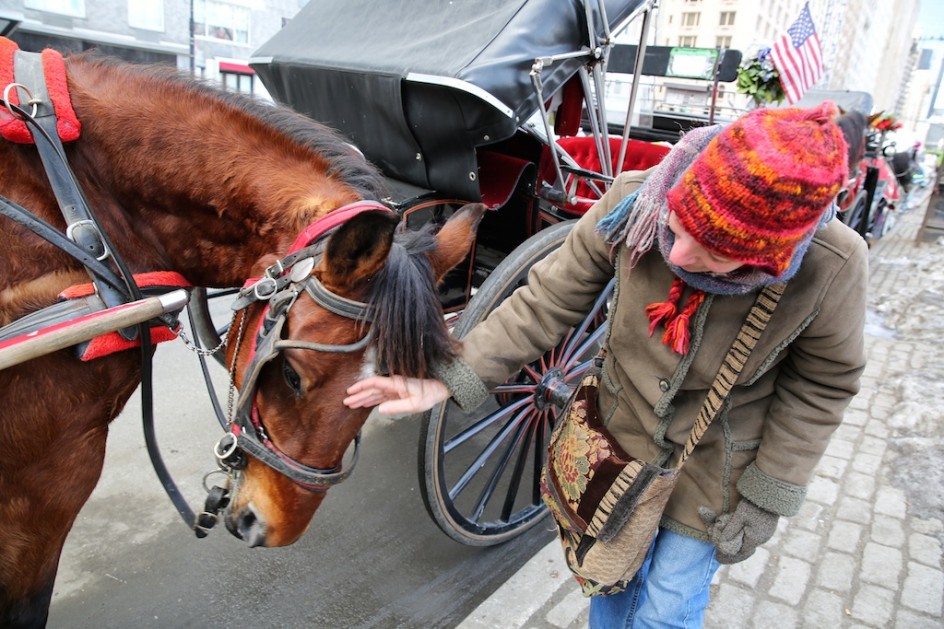
One of the great consequences of our culture’s emotionalizing of animals, I believe, is that we can only deal with them in terms of their being saved and abused, we have no real plan or idea beyond that for how they might live safely and share the world with us how they might not only be saved from abuse, but more importantly, from extinction. Many people in the animal world believe our primary obligation with animals is to segregate them from people, remove them from all the dangers and trials and realities of life. My idea is different, I believe our primary obligation is to keep them in our lives wherever we can and find meaningful roles for them to play – therapy dogs, Seeing Eye Dogs, police horses, search and rescue and bomb-sniffing dogs, border collie geese chasing dogs and yes, carriage horses. Any place they are with us, any work we can find, is precious to them, it is literally life and death.
It is wrenching for so many animal lovers when animals like the carriage horses, who have such work, who have such a place right in the heart of our greatest city, may soon be banished, the millions of people who might have seen, driven past them, ridden with them, may not ever get do so again. In the city where they have lived since the 1600’s, they will exist only in archives and in images stores in museums.
The eco-friendly vintage cart proposed to replace the carriage horses may stand as a poignant symbol for the near total victory of technology, greed and ignorance over the animals who have shared our space through out all of human history. What a horrific trade-off. There are so few real struggles left over the fate of animals in the world, each one is precious, this one is precious. Was there ever a more Biblical choice for a culture than to choose between the carriage horses and the carts?
We need a new language for talking to animals and understanding them. Monday and Tuesday I watched as Maria met King, the spirited former farm horse and veteran carriage horse. I have learned from our donkeys how they communicate so often with their noses, when they lower them, move towards us, nudge or bump us, they are speaking to us, asking for food, attention, to be groomed or brush, or often, to get to work, which they do often desperately need to do. Maria has learned to communicate with our equines in this way, her emotions are close to the surface, they sense her connection with them, they respond to it by touching her, asking her to touch them.
Monday, we met King, and Maria stroked the side of his nose, the top of his head. I saw them talking, my new lens captured this emotion in King, this exchange of emotions, this intimations of a language. When he lowered his head to her, he was saying something we all need to hear.
King has worked all of his 14 years, first as a farm horse, now as a carriage horse. If the carriage horses are banned from New York, King will face several possible fates: one is that as an older horse, he is now 14, he will be sent to slaughter, along with 155,000 other horses in the United States, the other is that the animal rights organizations will succeed in passing legislation requiring that he be sold to a horse rescue farm or preserve, where he will be prohibited from ever working again, will spent his days eating and dropping manure, and will have little or no contact with human beings.
Precious choices, my wish for King is that he stay where he is.
